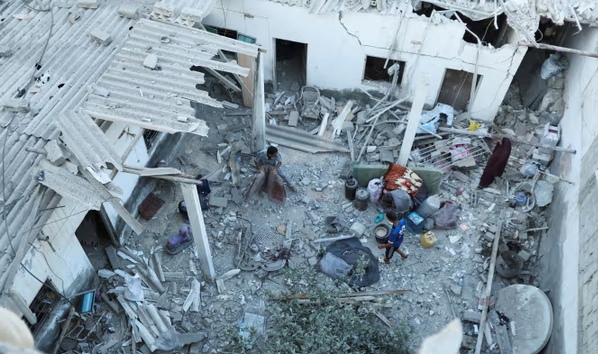The EU and Spain on Tuesday allocated 15.5 million euros for social benefits under the National Cash Transfer Programme. The funds will go to help 27,561 at-risk families in the West Bank, offering them crucial financial support in difficult times, EEAS reports.
The EU supports the Palestinian Authority (PA) Ministry of Social Development in providing basic social benefits to the most vulnerable families in the West Bank and Gaza Strip through the cash transfer programme. Given the current Palestinian Authority’s financial crisis, the EU and Spain have taken measures to fully cover two overdue payments to eligible beneficiaries in the West Bank.
In Gaza, where the humanitarian crisis is worsening, the EU, in partnership with the Ministry of Social Development and various international organisations, is delivering aid through multiple humanitarian channels. This integrated approach aims to reach an increasing number of vulnerable families and meet their basic needs as the war there continues.
This social benefit payment is part of the short-term emergency financial assistance to Palestine aimed at meeting the most urgent needs announced by the EU. It will target 27,561 extremely poor families, people with severe disabilities and elderly people over 65 without a pension in the West Bank. European funding is channelled and verified through the PEGASE mechanism to ensure their eligibility. Various independent and external checks are carried out before and after the allocation of European funds. The EU is allocating €13.5 million and Spain €2 million. EU Deputy Representative Maria Velasco said:
Social protection is a priority and a basic human right that must be upheld by governments around the world. In Palestine, the European Development Partners have played an important role in helping the Palestinian Authority build its own social protection system, which includes a cash transfer programme to support the poorest and most vulnerable. This programme is currently facing unprecedented challenges due to the ongoing financial crisis in the Palestinian Authority. This contribution by the EU and Spain confirms Europe’s continued commitment to support the most vulnerable in Palestine. This goes hand in hand with unprecedented European humanitarian support to the people of Gaza, where hundreds of thousands of families are struggling to meet their basic needs.
Ventura Rodriguez Garcia, Head of Spanish Co-operation, said in a statement:
Over the years, Spain has provided reliable and predictable support to the Palestinian government in providing basic public services to the Palestinian population, ensuring accountability and contributing to the reduction of multidimensional poverty. This year, our support aims to address the urgent needs of the most vulnerable households identified by the Ministry of Social Development through social benefits.
Since 2008, the majority of European Union aid to the PA has been channelled through the PEGASE direct financial support programme, which supports the PA’s reform process and various national development plans. PEGASE supports the PA’s recurrent expenditures, mainly civil servants’ salaries and pensions, social benefits paid through a cash transfer programme, and part of the costs of medical treatment in East Jerusalem hospitals.
Since 2008, the European Commission and various development partners, mainly EU member states, have disbursed more than €3 billion through PEGASE. The Joint European Strategy for Support to Palestine 2021-2024 is the framework for the implementation of European development co-operation and provides a joint European response to Palestinian priorities, including support for key reforms and programmes implemented by key ministries in preparation for statehood. In addition, the EU provides assistance through UNRWA, the UN Relief and Works Agency for Palestine Refugees in the Middle East.
